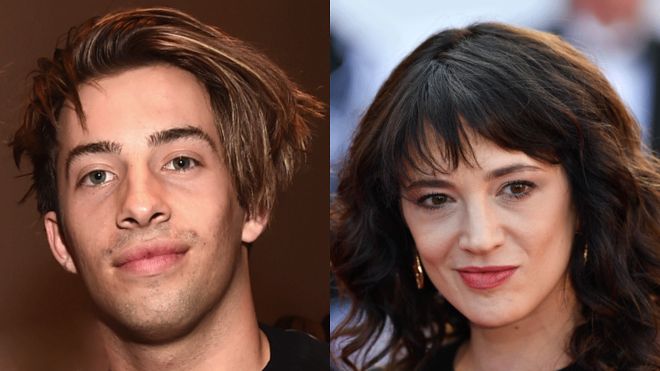The #MeToo movement is a social movement against the prevalent sexual assault and harassment taking place in society. Now a hashtag utilised by online audiences (majority female) to share harrowing yet unfortunately all too common situations of abuse, the movement originally comprised wealthy, high status women calling out their experiences of assault with wealthier men of even higher status in the media industry, starting with Harvey Weinstein. The movement also aims to highlight flaws within the justice system, and the constant blaming of the victim in assault cases. Such names immediately associated with the movement include Gwyneth Paltrow, Jennifer Lawrence, and the focal point of this article- Asia Argento.
Having been accused of assaulting, then seventeen actor, Jimmy Bennett in a California hotel room, and then paying him off to conceal the abuse, should Argento’s actions erase the progress of a movement providing voices to those who previously felt bound to silence? Of course not and for countless reasons such as the actions of one should not being given the platform to diminish the voices of the many, or that the abuse Argento herself faced is still valid and real- regardless of her own actions. But mainly, the ‘#MeToo’ movement was actually founded over a decade before Asia Argento even spoke its name.
As with a great deal of achievements in society, the hard work of people of colour have been belittled, undermined and rebranded as the achievements of Caucasian people. This is no different with the #MeToo movement which is actually the product of African American civil rights activist Tarana Burke. Burke first coined the term in 2006 as part of a MySpace campaign, aiming to empower women of colour within underprivileged communities who have experienced sexual abuse. A decade on, and the term exploded as a widely circulating hashtag, dominated mostly by rich, white actresses and those working in the media industry. Tarana Burke was soon erased from the picture, the credit given to the likes of actress Alyssa Milano, and the recently accused Asia Argento. Therefore, the actions of an upper class white woman should have no bearing on the current existence or future of a movement created to support normal struggling citizens in their everyday lives, and for it to do so would show a complete disrespect towards the innumerable individuals who became empowered through the #MeToo movement.
If anything, the case involving Bennett and Argento only furthers the need for a space to be created in society for victims of predators can feel able to come forward, tell their stories and receive justice for their ordeals. Arguably there is no greater example than Bennett’s, of a situation whereby a victim of assault has felt comfortable enough to stand up and share- and Tarana Burke’s #MeToo movement has been the enabler for such a discourse to prevail in a society so often unwilling to believe the victim and defend the accused.
If the Argento allegations teach us anything, let it be that anybody is capable of wrongdoing, and that rather than shifting the blame towards the masses of innocent victims utilising the #MeToo movement for nothing other than support and guidance, that abusers should be held fully accountable for their own actions. Yes, Argento remains a part of the movement, but that will never change what she herself has been accused of. We must stop trying to find a scapegoat and instead focus on what is right in front of us.
Catheryne Fairbairn
(Image courtesy of BBC NEWS)

